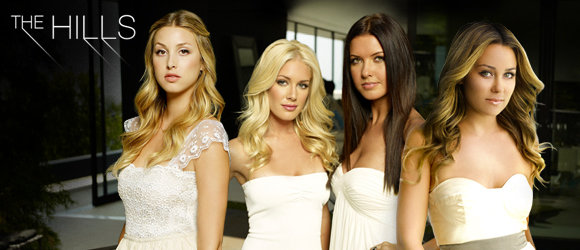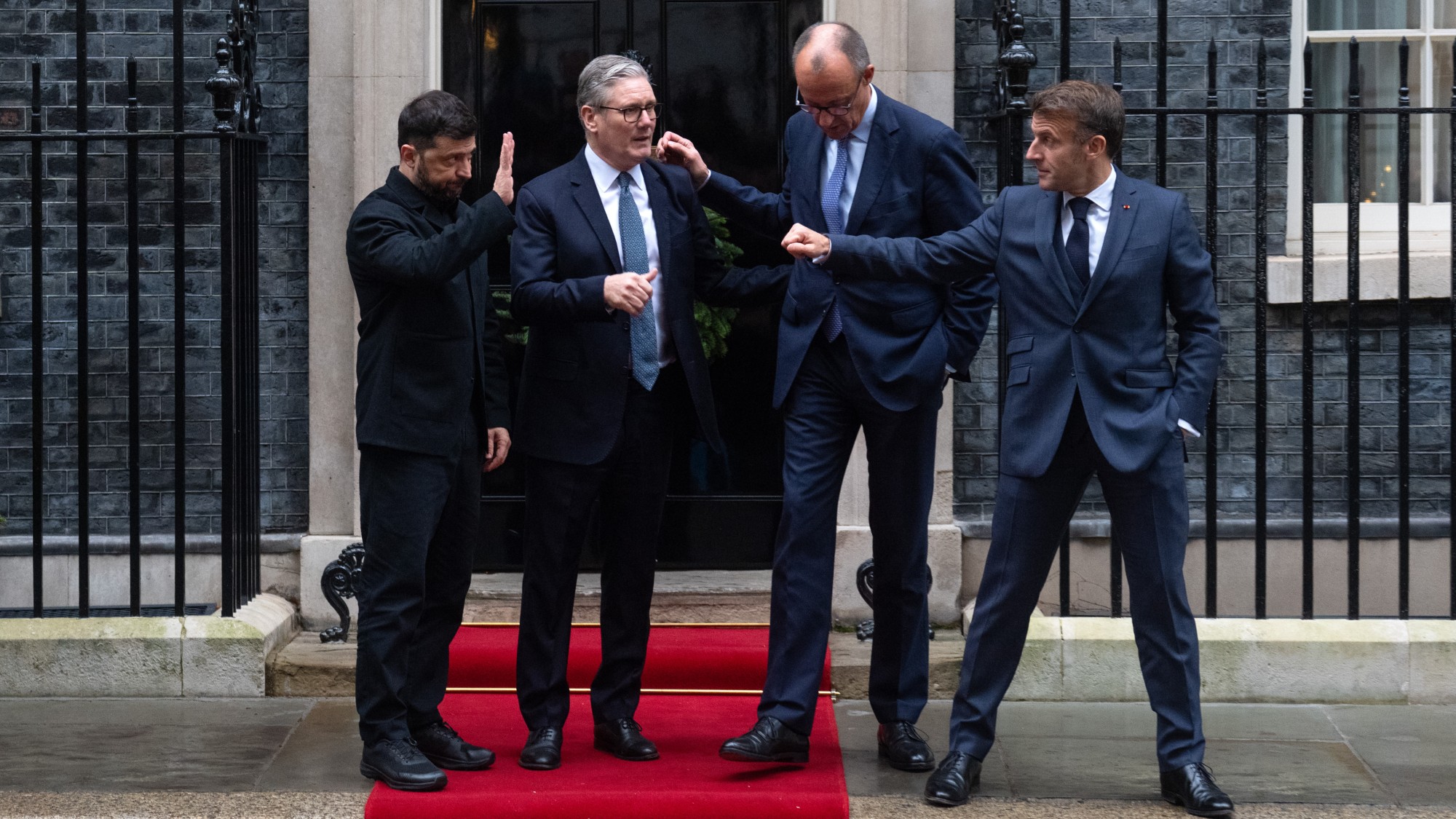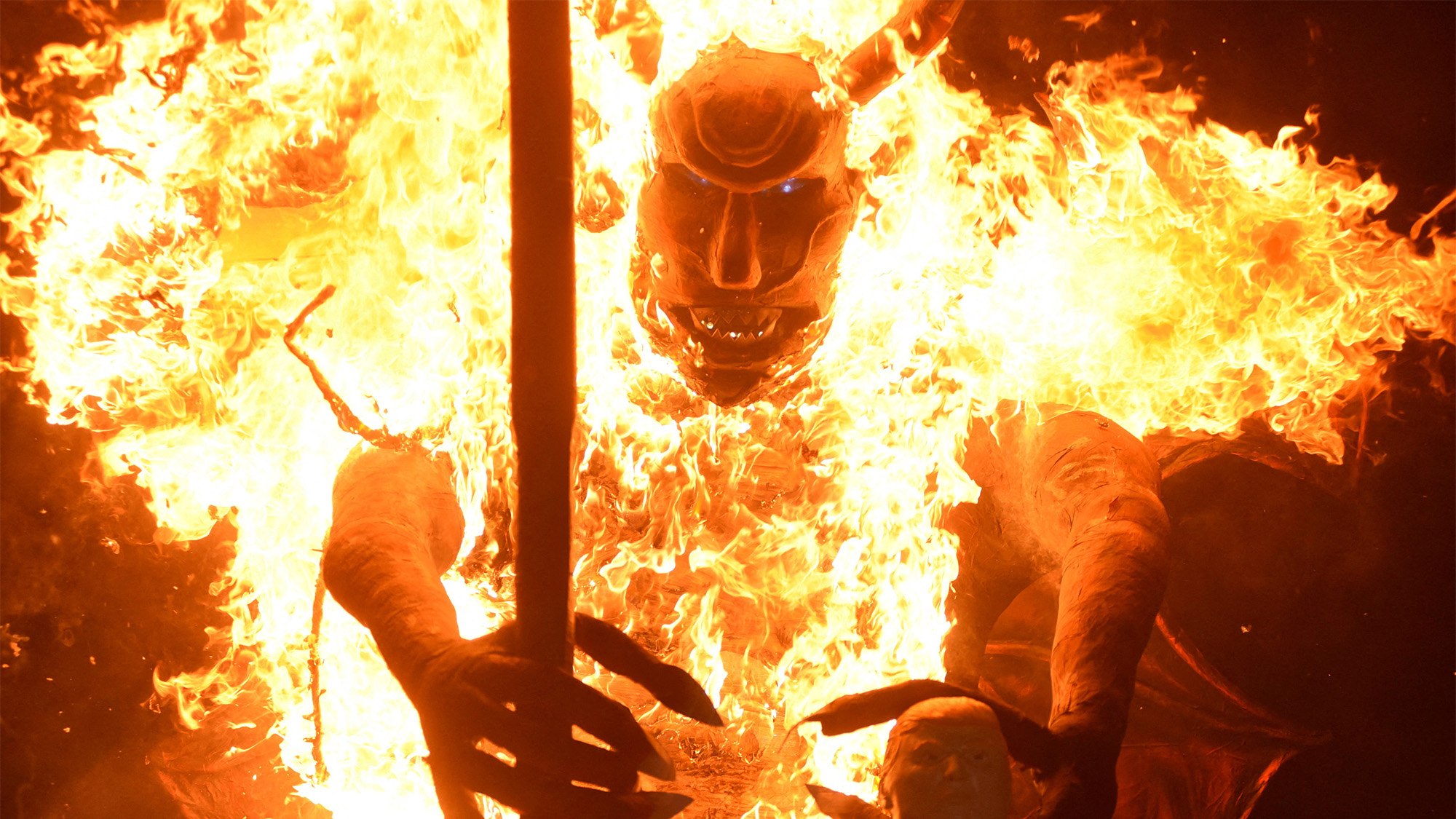What I learned from The Hills
On the 10-year anniversary of the show's premiere, a look at how it changed reality TV


It was the tear seen 'round the web. A single streak of mascara down a perfectly pretty and pained face.
If you've been on the internet in the last decade, you've seen that GIF before. It shows SoCal princess Lauren Conrad, in the midst of a friendship-defining conversation on her MTV reality show The Hills, shedding a single, picture-perfect tear. When it first happened, it was as relatable as it was heart-wrenching. After all, who among us hasn't lost the fight against their stubborn tear ducts during a hard talk with a best friend?
When it premiered on MTV a decade ago, on May 31, 2006, The Hills was already a familiar product. Its main character, Conrad, was a cast member on the unofficial prequel Laguna Beach (which also aired on MTV), where she was known as "LC" and essentially portrayed as the nice girl who got played. As the narrator of Laguna Beach's first season, Conrad led audiences through half-hour digests of the drama at Laguna Beach High School in southern California, ranging from love triangles to friends' trips to graduation (though very rarely involving any actual schoolwork). Featuring Conrad's voiceover by default asked the audience to watch events unfold through her perspective; after Conrad graduated from Laguna Beach High School in 2004, her dreams to move up the coast to Los Angeles and pursue a career in fashion inspired Laguna Beach producer Adam DiVello to create The Hills.
The Week
Escape your echo chamber. Get the facts behind the news, plus analysis from multiple perspectives.

Sign up for The Week's Free Newsletters
From our morning news briefing to a weekly Good News Newsletter, get the best of The Week delivered directly to your inbox.
From our morning news briefing to a weekly Good News Newsletter, get the best of The Week delivered directly to your inbox.
"I wanted to take Lauren and follow her to Los Angeles," DiVello told Women's Wear Daily in 2010. "She wants to be a fashion designer, and I thought it was so aspirational, this little girl from Laguna Beach who always wanted the boy but always lost him to the bad girl. She was kind of every girl."
Of course, most of us weren't on national TV in high school, nor have we had our saddest moments played back in slow-motion for the world to see. But The Hills still struck a chord with viewers, and audiences consistently tuned in to watch young, rich, almost exclusively blonde girls do... well, not much, except live their adult lives. They went to work at PR firms, record companies, and Teen Vogue. They ate brunch in the sun and hung out in backyard pools. They went shopping a lot and gossiped even more. Sometimes they went on dates, and other nights they had girls' nights in. It was all very quotidian — were it not being broadcast on national television. While competition shows like Survivor and American Idol had already been thriving, most other reality TV revolved around some gimmick, whether it was the younger sister of a pop star or Orwellian living conditions or seven strangers co-habitating. Even Laguna Beach had the shtick of trying to be the "real" version of The O.C., Fox's hit scripted teen drama from the mid-aughts.
With The Hills, the gimmick was inherent, not applied: It relied exclusively on the public's penchant for voyeurism, and DiVello's "every girl" theme. No one was particularly famous or prodigiously talented; the homes were more "Hollywood mansion" than "1984 nightmare." What kept viewers coming back each week was the opportunity to see young people with extravagant means navigate a life that was recognizable — but not quite attainable.
As a teenage girl growing up in Los Angeles during The Hills' run, the idea that I could get a glimpse of what my life would be like in just a few years was intoxicating. When the show premiered in May 2006, I was a few months from starting high school — so of course, all I wanted was to skip ahead to graduation and college. So what did it matter if I wasn't blonde and had never been to Cabo? If I was going to be stuck for four years, well, LC had made it through to the glamorous L.A. life on the other side, and I could get a preview of it while I waited my turn.
A free daily email with the biggest news stories of the day – and the best features from TheWeek.com
And wow, did that life look fun. There were magazine internships (fraught with tough decisions!) and sassy best friends and boyfriends good and bad. There was the invincibility that comes with being a semi-famous youth, as Conrad and Co. constantly went to the hottest clubs in L.A., even while they were underage. Forget suburban house parties and school-sanctioned dances, I was promised — I'll soon be going to Les Deux!
"People enjoy watching other people's lives unfold," DiVello said in the WWD interview. "For The Hills, there was an aspirational element, but at the core of it, any teenager who is still in high school or college and is wondering what their future will be like can relate."
I'd like to say I didn't play perfectly into DiVello's demographic research — but I did. Obviously, I did not go partying at Les Deux when I turned 18, and I never spent the summer in a romantic Malibu rental. Luckily, I've never lost a friend over who she chose to date. But from her seeing her new L.A. apartment for the first time to being "the girl who didn't go to Paris" to screaming "you know what you did!" at a nightclub to crying while wearing non-waterproof mascara, Conrad showed me key moments of a life in my city that seemed fun and dramatic and almost within reach, even if deep down I knew I wouldn't have it.
Thanks to The Hills, "watching people live their lives" somehow became must-see television. These days, we've got "real housewives" broadcasting life from every major city. We've got Amish defectors and basketball spouses. And, of course, we have the Kardashians, who became famous for being famous. It's now totally commonplace to block off time in your night to sit on your couch and watch people simply go about their days (and sometimes yell at each other).
But The Hills, which ended in 2010 (though Conrad left the show in 2009), is somehow different. Events may have been semi-scripted or manipulated by production, but it was the first show to let us in on the "real" life of someone we could conceivably know, or might even be someday. And that's why we all bought in. "Lauren is a genuine human being who wore her heart on her sleeve," producer Sara Mast told MTV News in a behind-the-scenes oral history of the show, and that's the point. Conrad was just a girl making the transition from high school to adulthood in fast-paced, unforgiving Los Angeles. And she lived all the moments, good and bad, in front of the cameras, for us to learn from. She wasn't a reality show character. She was real — even when she cried.
Kimberly Alters is the news editor at TheWeek.com. She is a graduate of the Medill School of Journalism at Northwestern University.
-
 Will there be peace before Christmas in Ukraine?
Will there be peace before Christmas in Ukraine?Today's Big Question Discussions over the weekend could see a unified set of proposals from EU, UK and US to present to Moscow
-
 Quiz of The Week: 6 – 12 December
Quiz of The Week: 6 – 12 DecemberQuiz Have you been paying attention to The Week’s news?
-
 The week’s best photos
The week’s best photosIn Pictures A man's best friend, the elephants in the room, and more
-
 Walter Isaacson's 'Elon Musk' can 'scarcely contain its subject'
Walter Isaacson's 'Elon Musk' can 'scarcely contain its subject'The latest biography on the elusive tech mogul is causing a stir among critics
-
 Welcome to the new TheWeek.com!
Welcome to the new TheWeek.com!The Explainer Please allow us to reintroduce ourselves
-
 The Oscars finale was a heartless disaster
The Oscars finale was a heartless disasterThe Explainer A calculated attempt at emotional manipulation goes very wrong
-
 Most awkward awards show ever?
Most awkward awards show ever?The Explainer The best, worst, and most shocking moments from a chaotic Golden Globes
-
 The possible silver lining to the Warner Bros. deal
The possible silver lining to the Warner Bros. dealThe Explainer Could what's terrible for theaters be good for creators?
-
 Jeffrey Wright is the new 'narrator voice'
Jeffrey Wright is the new 'narrator voice'The Explainer Move over, Sam Elliott and Morgan Freeman
-
 This week's literary events are the biggest award shows of 2020
This week's literary events are the biggest award shows of 2020feature So long, Oscar. Hello, Booker.
-
 What She Dies Tomorrow can teach us about our unshakable obsession with mortality
What She Dies Tomorrow can teach us about our unshakable obsession with mortalityThe Explainer This film isn't about the pandemic. But it can help viewers confront their fears about death.
